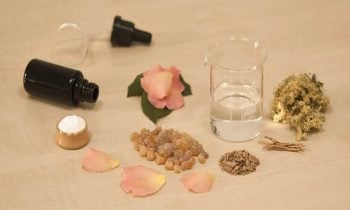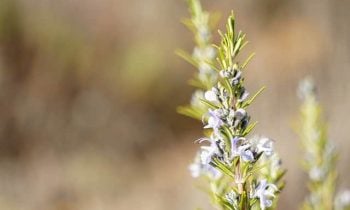Depending on density and molecular makeup, some essential oils work better when applied directly to the skin after dilution with a carrier oil. Others seem to offer the best benefits when they are added to foods and recipes. Many essential oils are perfect for diffusing, because of their inherent chemical composition. The following 7 essential oils are among the most popular for use with a diffuser.
Lavender
The fresh, calming, peaceful aroma of the lavender plant is perfect for diffusing. Diffusers work through a number of different methods to infuse your local atmosphere with aromatic essential oils. Lavender is known as one of the most versatile essential oils because it works well in cleaning recipes, it can be topically applied or diffused aromatically, and it provides a number of mental and physical health benefits. Diffusing the wonderful lavender aroma into the air provides nearly instant relief from stress, anxiety and depression.
Peppermint
Any time you need a pick-me-up, diffuse a little peppermint oil. The fresh, minty scent of this plant can open up blocked respiratory channels and help combat seasonal allergies, colds and the flu. Increased mental focus, headache relief and depression-proofing are additional benefits. Peppermint oil can be mixed in a spray bottle with water to make an excellent household cleaner and air freshener.
Frankincense
Frankincense oil will set you back a little more money than most other essential oils, but the fact that it is an excellent anti-inflammatory means it can contribute to a number of health benefits. Inflammation is present in chronic disease, physical injuries and other illnesses and afflictions. Frankincense oil applied topically or diffused into the air helps quickly calm inflammation, and its focusing mental benefit is well-known.
Cinnamon
Cinnamon smells intoxicating and spicy, delivering an earthy, sweet scent that leads to mental comfort. Cinnamon oil offers antioxidant, anti-inflammatory, antidepressant and anti-parasitic properties that deliver a number of health benefits. Microscopic parasites inside your body and on your scalp and skin despise cinnamon oil, as does the inflammation that is present with several unfortunate and painful health problems like arthritis.
Lemon
Lemon, like the other oils on this list, is absolutely essential for an aromatherapy practice. Add lemon oil to any type of cleaning recipe or just mix it with water to make a powerful and crisp-smelling household cleaner. Its purifying aroma helps to deodorize your home, and lemon has strong focus-boosting, mentally invigorating properties.
Lemongrass
Lemongrass is a plant used in many Thai restaurants and traditional Thai recipes. This tropical and hearty grass native to Sri Lanka and India is now cultivated in Asia and Africa as well. Consumed in tea and added with other oils as a natural household cleanser, lemongrass has a sweet, mild aroma. Use it in your diffuser to benefit from antifungal, anti-inflammatory and antimicrobial properties. This means your air is cleaner and safer to breathe, and your body benefits by keeping inflammation at bay.
Tea Tree Oil
You may know this as melaleuca oil. Tea tree or melaleuca essential oil is used in traditional Australian medicine as a natural treatment for cold symptoms, and it provides effective sore throat relief. Use it in your diffuser to improve your skin health and heal external wounds, scars and burns.


 Gift Giving Guidelines
Gift Giving Guidelines 6 of the Most Popular Essential Oils and What They Can Do for Your Health
6 of the Most Popular Essential Oils and What They Can Do for Your Health 7 Essential Oils for Energy
7 Essential Oils for Energy